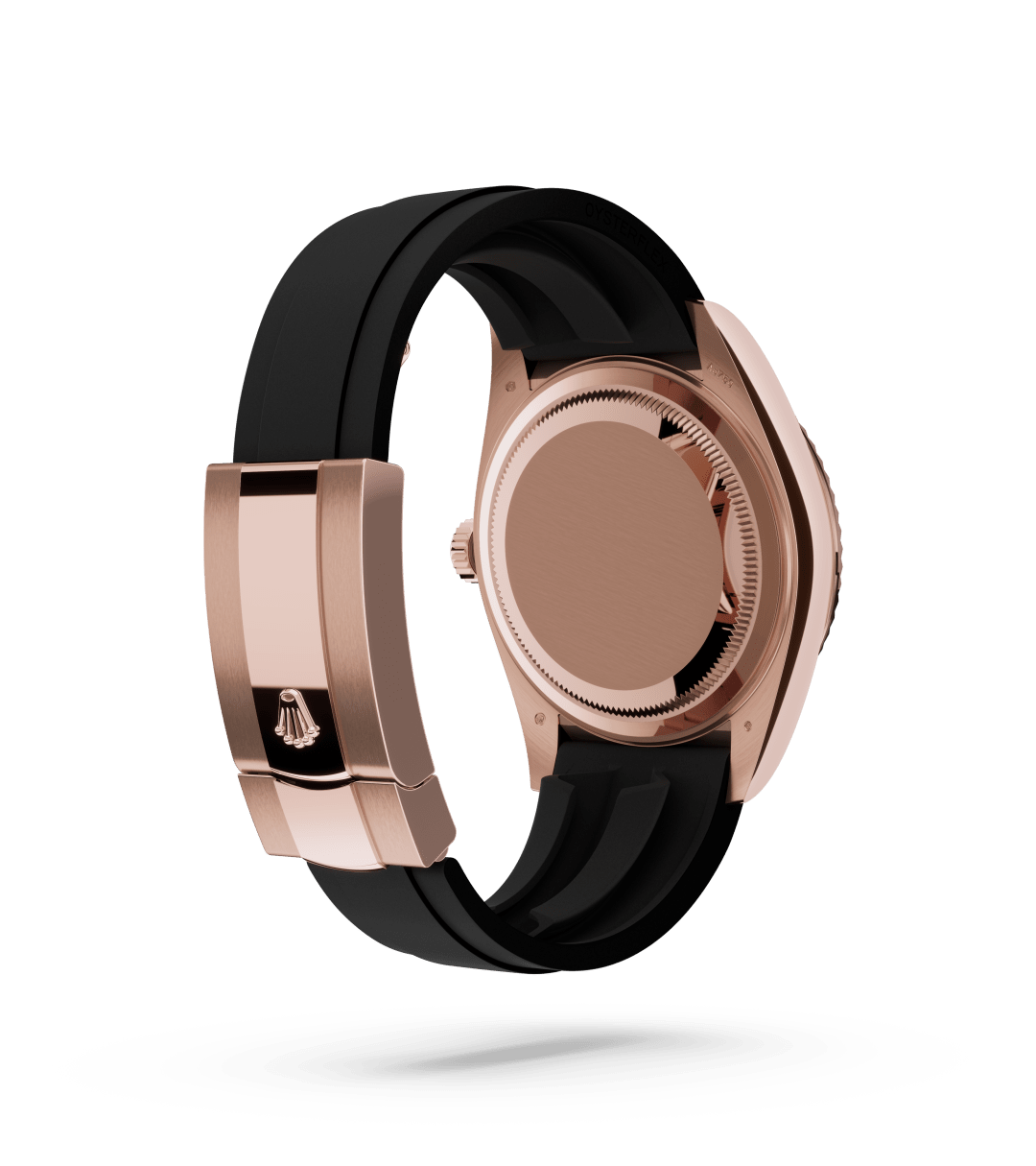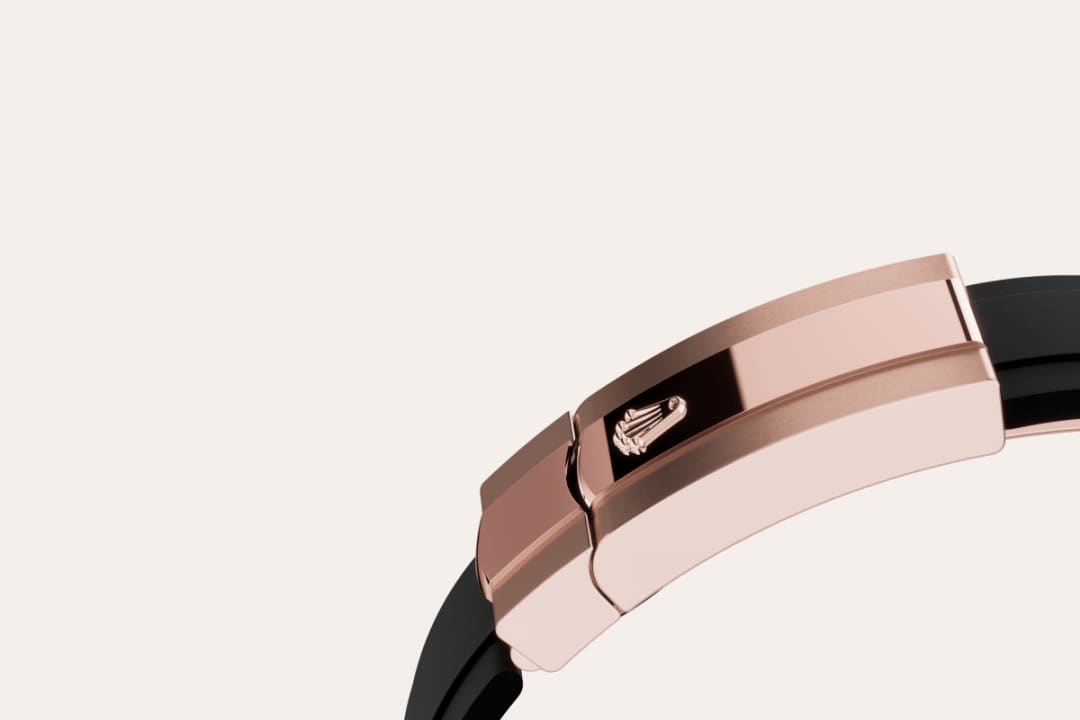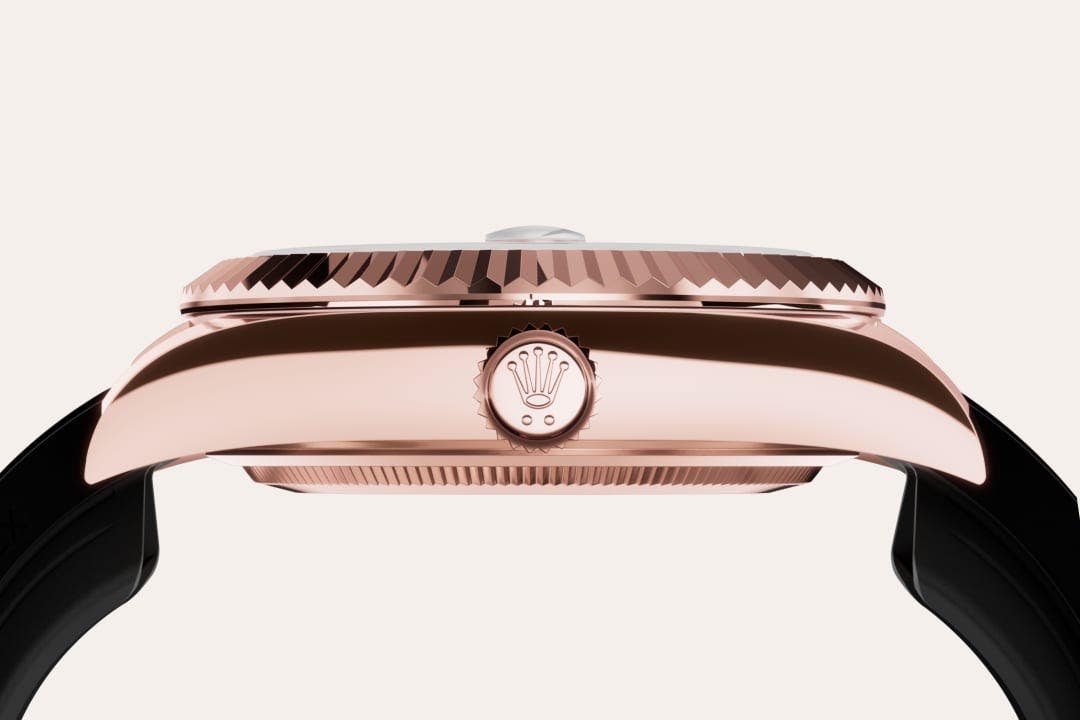- Rolex
- Rolex watches
- The Sky-Dweller collection
- M336235-0003

The Oysterflex Bracelet
The Sky-Dweller’s new Oysterflex bracelet, developed by Rolex and patented, offers a sporty alternative to metal bracelets. The bracelet attaches to the watch case and the Oysterclasp by a flexible titanium and nickel alloy metal blade. The blade is overmoulded with high-performance black elastomer which is particularly resistant to environmental effects, very durable and perfectly inert for the wearer of the watch. For enhanced comfort, the inside of the Oysterflex bracelet is equipped with a patented longitudinal cushion system that stabilizes the watch on the wrist and fitted with an 18 ct Everose gold Oysterclasp. It also features the Rolex Glidelock extension system, designed by the brand and patented. This inventive toothed mechanism, integrated beneath the clasp, allows fine adjustment of the bracelet length by some 15 mm in increments of approximately 2.5 mm, without the use of tools.
18 ct Everose gold
To preserve the beauty of its pink gold watches, Rolex created and patented an exclusive 18 ct pink gold alloy cast in its own foundry: Everose gold. Introduced in 2005, 18 ct Everose is used on all Rolex Oyster models in pink gold.
Intense white dial
A fixed inverted red triangle on the dial points to the chosen reference time – the time at home or at the traveller’s usual workplace – on the off-centre 24-hour disc. At a glance, this 24-hour display clearly distinguishes daytime hours from night-time hours in the other time zone. The dials now feature rectangular index hour markers and longer hands, as well as a Chromalight display with long-lasting luminescence, which enhances legibility. A deep red rectangle in one of the 12 windows around the dial indicates the current month, a striking characteristic of the Saros annual calendar. This ingenious mechanism simplifies life for the wearer of the watch, who no longer needs to think about adjusting the date at the end of a 30-day month. The annual calendar displays the correct date through the year. Only one adjustment is needed – on 1 March (February having only 28 or 29 days). The date is connected to local time and automatically changes according to the traveller’s local time zone.













